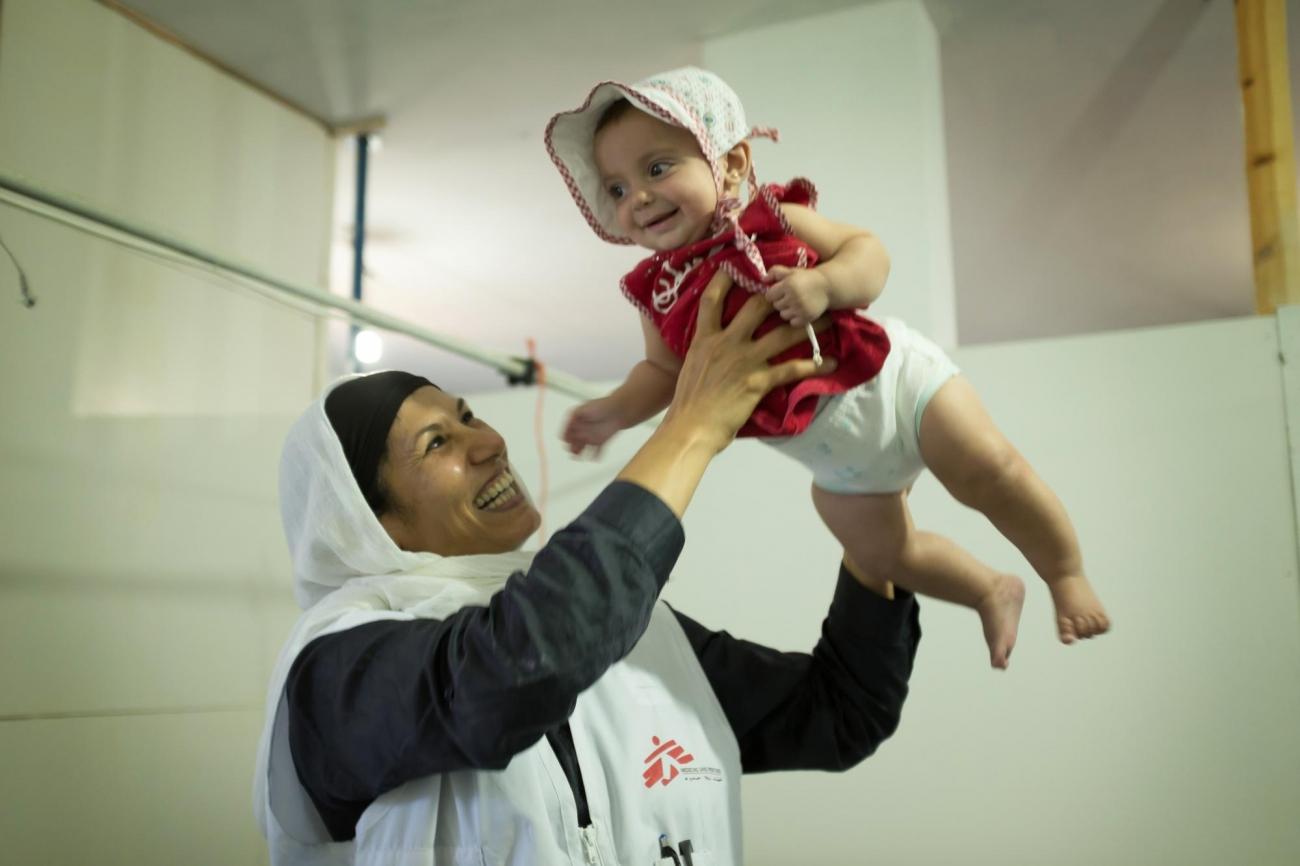
Profile
DIPLOMA
- pediatrician diploma
- training of added value: neonatology and/or intensive care, management of children requiring emergency care or cardio-respiratory intensive care: APLS (Acute Pediatric Life Support) and/or HBB (Helping Babies Breathe), ETAT (Emergency Triage, Assessment and Treatment)
- current matriculation in Medical Council/Board
EXPERIENCE
- clinical experience in hospital pediatrics acquired during the last 5 years (primary and/or specialised pediatric care), other skills
AVAILABILITY
- 6 months
LANGUAGES
- comfortable in English: ¾ of our missions are English-speaking.
SKILLS
- able to work in multicultural and multidisciplinary teams
Pediatrician plan, organise and evaluate pediatric activities in close collaboration with the country's healthcare staff working at MSF intervention sites. These facilities can include primary health care centers, clinics or hospitals.
Training in tropical medicine or disaster medicine is not required for involvement with MSF. This is the case whether you have just completed your thesis, you are practicing or recently retired.
Activities
Pediatricians are responsible for all clinical activities and pediatric teaching within the framework of MSF activities. The pediatric department covers all the speciality's disciplines except surgery. The main pathologies are paludisme, acute respiratory infections and malnutrition. Pediatricians manage the paramedical team in collaboration with the department's nurse supervisor and/or head of nursing care. They represent their department with other departments, ensure good collaboration all round and account for their department's activity.
1. Participates in the pediatric department's development
Management
- carries out the department's activities as defined in project-activity agreements in partnership with the department's medical officer and the head of nursing care,
- still in close liaison with the department's medical officer and the head of nursing care, aligns the department's organisation to activities once the medical advisor's approval has been received (department's spatial organisation, adherence to children's admission and discharge criteria, etc.),
- organises departmental meetings,
- participates in medical meetings with the medical advisor.
Human resources
- participates in the choice and validation of departmental team members,
- ensures departmental team members are informed of decisions taken and projects underway,
- takes the necessary steps to guarantee the permanent acquisition of skills.
2. Ensures the delivery of healthcare
- guarantees the application of good medical practices as recommended in MSF guidelines and healthcare protocols
- carries out daily departmental rounds with his departmental colleagues,
- oversees the proper transfer of information to patients and their close circles throughout their clinical care,
- provides the required clinical care documentation: oversees the proper upkeep of registers and patient records;
- ensures that requests for laboratory tests and radiographs are pertinent and documented according to the procedures in place so as to ensure rational invoicing,
- ensures the proper transfer of information to and close collaboration with internal and external third parties (head doctor, medical interns, etc.),
- manages emergencies and ensures that care is provided to all hospitalised patients while on call/stand-by.
3. Provides ongoing training
- ensures the participation of doctors in ongoing pediatric training, both at the patients' bedside and via more formal sessions.
4. Monitor activity and define objectives
- participates in epidemiological data collection and analysis and draws up a monthly report of activities carried out,
- notifies the medical advisor of any medical errors or any incidents/accidents occurring during a patient's care.